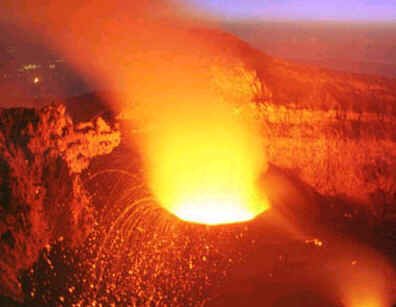

HORRIBLE SUFFERINGS INTO THE LAKE OF FIRE PART - 2
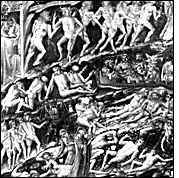 O darkness most obscure! O night everlasting! O
night accursed even by the mouth of Almighty God
and all his Saints! That one shall wish for light, and
shall never see it, neither shall the brightness of the
morning arise any more. Consider then what a kind of
torment shall that be, to live everlastingly in such a
night as this is, lying not in a soft bed (as the sick man
doth) but in a hot burning furnace, foaming out such
terrible raging flames. What shoulders shall be able to
abide those horrible heats?
O darkness most obscure! O night everlasting! O
night accursed even by the mouth of Almighty God
and all his Saints! That one shall wish for light, and
shall never see it, neither shall the brightness of the
morning arise any more. Consider then what a kind of
torment shall that be, to live everlastingly in such a
night as this is, lying not in a soft bed (as the sick man
doth) but in a hot burning furnace, foaming out such
terrible raging flames. What shoulders shall be able to
abide those horrible heats?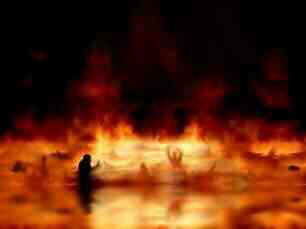 If it seem to us as a thing
intolerable to have only some part of our feet standing
upon a pan of burning coals, for the space of
repeating the Lord's prayer, what shall it be (think
you) to stand body and soul burning in the midst of
those everlasting hot raging fires in hell, in comparison
of which, the fires of this world are but painted fires?
Is there any wit or judgement in this world? Have
men their right senses? Do they understand what
these words import? or are they peradventure
persuaded, that these are only the fables of poets? or
do they think, that this appertaineth not to them, or
else that it was only meant for others? None of all this
can they say, for so much as our faith assureth us
most certainly herein. And our Savior Christ himself, who is everlasting truth, crieth out in his Gospel, saying, Heaven and earth
shall fail, but my word shall not fail. Of this misery there followeth another as great as it, which is, that the pains are always
continuing in one like degree, without any manner of intermission, or decreasing. All manner of things that are under the scope of
heaven, do move and turn round about with the same heaven, and do never stand still at one state or being, but are continually
either ascending or descending. The sea and the rivers have their ebbing and flowing, the times, the ages, and the mutable fortune
of men, and of kingdoms are evermore in continual motion. There is no fever so fervent, that doth not decline, neither grief so
sharp, but that after it is much augmented, it doth forthwith decrease. To be short, all the tribulations and miseries are by little and
little worn away with time, and as the common saying is, Nothing is sooner dried up than tears. Only that pain in hell is always
green, only that fever never decreaseth, only that extremity of heat knoweth not what is either evening or morning. In the time of
Noah's flood, Almighty God rained forty days and forty nights, continually without ceasing upon the earth, and this sufficed to
drown the whole world. But in that place of torment in hell, there shall rain everlasting vengeance, and darts of fury upon that
cursed land, without ever ceasing so much as only one minute or moment. Now what torment can be greater, and more to be
abhorred, than continually to suffer after one like manner, without any kind of alteration or change? Though a meat be never so
delicate, yet in case we feed continually thereupon, it will in very short time be very loathsome unto us for no meat can be more
precious and delicate than that manna was, which Almighty God sent down unto the children of Israel in the desert, and yet
because they did eat continually thereof, it made them to loath it, yea, and provoked them to vomit it up again. The way that is all
plain (they say) weareth more than any other, because always the variety (yea even in punishment) is a kind of comfort.
If it seem to us as a thing
intolerable to have only some part of our feet standing
upon a pan of burning coals, for the space of
repeating the Lord's prayer, what shall it be (think
you) to stand body and soul burning in the midst of
those everlasting hot raging fires in hell, in comparison
of which, the fires of this world are but painted fires?
Is there any wit or judgement in this world? Have
men their right senses? Do they understand what
these words import? or are they peradventure
persuaded, that these are only the fables of poets? or
do they think, that this appertaineth not to them, or
else that it was only meant for others? None of all this
can they say, for so much as our faith assureth us
most certainly herein. And our Savior Christ himself, who is everlasting truth, crieth out in his Gospel, saying, Heaven and earth
shall fail, but my word shall not fail. Of this misery there followeth another as great as it, which is, that the pains are always
continuing in one like degree, without any manner of intermission, or decreasing. All manner of things that are under the scope of
heaven, do move and turn round about with the same heaven, and do never stand still at one state or being, but are continually
either ascending or descending. The sea and the rivers have their ebbing and flowing, the times, the ages, and the mutable fortune
of men, and of kingdoms are evermore in continual motion. There is no fever so fervent, that doth not decline, neither grief so
sharp, but that after it is much augmented, it doth forthwith decrease. To be short, all the tribulations and miseries are by little and
little worn away with time, and as the common saying is, Nothing is sooner dried up than tears. Only that pain in hell is always
green, only that fever never decreaseth, only that extremity of heat knoweth not what is either evening or morning. In the time of
Noah's flood, Almighty God rained forty days and forty nights, continually without ceasing upon the earth, and this sufficed to
drown the whole world. But in that place of torment in hell, there shall rain everlasting vengeance, and darts of fury upon that
cursed land, without ever ceasing so much as only one minute or moment. Now what torment can be greater, and more to be
abhorred, than continually to suffer after one like manner, without any kind of alteration or change? Though a meat be never so
delicate, yet in case we feed continually thereupon, it will in very short time be very loathsome unto us for no meat can be more
precious and delicate than that manna was, which Almighty God sent down unto the children of Israel in the desert, and yet
because they did eat continually thereof, it made them to loath it, yea, and provoked them to vomit it up again. The way that is all
plain (they say) weareth more than any other, because always the variety (yea even in punishment) is a kind of comfort.
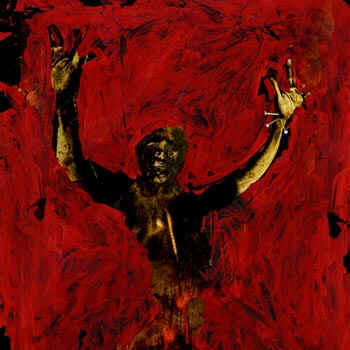 Tell me then, if things that be pleasant and savoury, when they be always after one manner, are an occasion of loathsomeness and
pain: what kind of loathsomeness will that be which shall be caused by those most horrible pains and torments in hell, which do
continue everlastingly after one like sort? What will the damned and cursed creatures think, when they shall there see themselves
so utterly abhorred and forsaken of Almighty God, that he will not so much as with the remission of any one sin, mitigate
somewhat their torments? And so great shall the fury and rage be which they shall there conceive against him, that they shall never
cease continually to curse and blaspheme his holy name. Unto all these pains, there is also added the pain of that everlasting
consumer, to wit, the worm of conscience, whereof the Holy Scripture maketh so often times mention, saying, Their worm shall
never die, and their fire shall never be quenched. This worm is a serious raging despite and bitter repentance, without any fruit,
which the wicked shall always have in hell, by calling to their remembrance the opportunity and time they had whiles they were in
this world, to escape those most grievous and horrible torments, and how they would not use the benefit thereof. And therefore
when the miserable sinner seeth himself thus to be tormented and vexed on every side, and doth call to mind how many days and
years he hath spent idlely in vanities, past times, and pleasures; and how oftentimes he was advertised of this peril, and how little
regard he took thereof: What shall he think? What anguish and sorrow shall there be in his heart? Hast thou not read in the
Gospel, that there shall be weeping and wailing, and gnashing of teeth? The famine of Egypt endured only seven years, but that in
hell shall endure everlastingly. In Egypt they found a remedy, though with great difficulty and charge, but for this, there shall never
any remedy be found. Theirs was redeemed with money and cattle, but this can never be redeemed with any manner of exchange.
Tell me then, if things that be pleasant and savoury, when they be always after one manner, are an occasion of loathsomeness and
pain: what kind of loathsomeness will that be which shall be caused by those most horrible pains and torments in hell, which do
continue everlastingly after one like sort? What will the damned and cursed creatures think, when they shall there see themselves
so utterly abhorred and forsaken of Almighty God, that he will not so much as with the remission of any one sin, mitigate
somewhat their torments? And so great shall the fury and rage be which they shall there conceive against him, that they shall never
cease continually to curse and blaspheme his holy name. Unto all these pains, there is also added the pain of that everlasting
consumer, to wit, the worm of conscience, whereof the Holy Scripture maketh so often times mention, saying, Their worm shall
never die, and their fire shall never be quenched. This worm is a serious raging despite and bitter repentance, without any fruit,
which the wicked shall always have in hell, by calling to their remembrance the opportunity and time they had whiles they were in
this world, to escape those most grievous and horrible torments, and how they would not use the benefit thereof. And therefore
when the miserable sinner seeth himself thus to be tormented and vexed on every side, and doth call to mind how many days and
years he hath spent idlely in vanities, past times, and pleasures; and how oftentimes he was advertised of this peril, and how little
regard he took thereof: What shall he think? What anguish and sorrow shall there be in his heart? Hast thou not read in the
Gospel, that there shall be weeping and wailing, and gnashing of teeth? The famine of Egypt endured only seven years, but that in
hell shall endure everlastingly. In Egypt they found a remedy, though with great difficulty and charge, but for this, there shall never
any remedy be found. Theirs was redeemed with money and cattle, but this can never be redeemed with any manner of exchange.
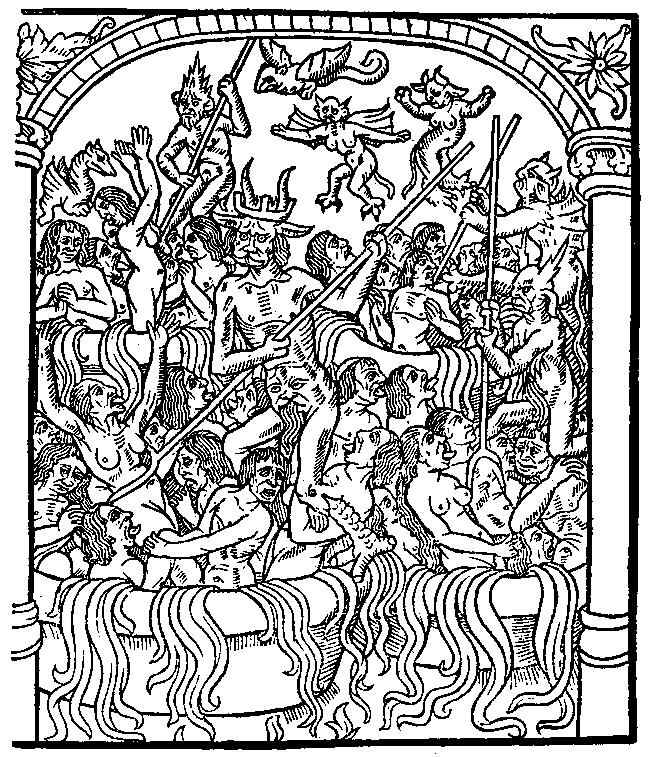
This punishment cannot be pardoned, this pain
cannot be exchanged, this sentence cannot be
revoked. Oh, if thou knewest and wouldest
consider, how every one condemned to hell, shall
there remain tormenting and renting himself,
weeping, and wailing, and saying: O miserable and
unfortunate wretch that I am, what times and
opportunities have I suffered to pass in vain?
Wherefore did I not look before me? How was I
blinded with things present? How did I let pass the
fruitful years of abundance, and did not enrich
myself (spiritually)? If I had been brought up
amongst infidels and pagans, and had believed that
there had been nothing else but only to be born, and
to die, then might I have had some kind of excuse,
and might have said, I knew not what was
commanded or prohibited me: but for so much as I have lived amongst Christians, and was myself one of them professed, and
held it for an article of my belief, that the hour should come when I should give up an account after what order I had spent my life:
forsomuch also as it was daily cried out unto me by the continual preaching and teaching of God's ambassadors, forsomuch I say
as I made light of all these examples, and persuaded myself very fondly, that heaven was prepared for me, though I took no pains
for it at all: what deserve I that have thus led my life? O ye infernal furies, come and rent me in pieces, and devour these my
bowels, for so have I justly deserved, I have deserved eternal famishment, seeing I would not provide for my self while I had time.
I deserve not to reap, because I have not sown: I am worthy to be destitute, because I have not laid up in store; I deserve that my
request should now be denied me, since when the poor made request unto me, I refused to relieve them: I have deserved to sigh
and lament so long as God shall be God; I have deserved, that this worm of conscience shall gnaw mine entrails forever and ever,
by representing unto me the little pleasure that I have enjoyed, and the great felicity which I have lost, and how far greater that was
which I might have gained, by forgoing that little which I would not forgo. This is that immortal worm that shall never die, but shall
lie there everlastingly gnawing at the entrails of the wicked, which is one of the most terrible pains that can possibly be imagined.
Peradventure thou art now persuaded that there can be added no more unto this, than hath been said. But surely the mighty arm of
God wanteth not force to chastise his enemies more and more: for all these pains that are hitherto rehearsed, are so as do
appertain generally to all the damned: but besides these general pains, there are also other particular pains, which each one of the
damned shall there suffer in diverse sort, according to the quality of his sin. And so according to this proportion, the haughty and
proud shall there be abased and brought low to
their great confusion. 
The covetous shall be driven to great necessity: the glutton shall rage with continual hunger and thirst. The lecherous shall burn in the very same flames which they themselves have enkindled. And those that have all their life time hunted after their pleasures and pastimes, shall live there in continual lamentation and sorrow. But because examples are of very great force to move our hearts, I will bring only one for this purpose, whereby somewhat of this matter may the better be perceived. It is written of a certain holy man, that he saw the pains (in spirit) of a licentious and worldly man in this sort. First he saw how the devils that were present at the hour of his death, when he yielded up his ghost, snatched away his soul with great rejoicing, and made a present thereof to the prince of darkness, who was then sitting in a chair of fire, expecting the coming of this present. Immediately after that it was presented before him, he arose up out of his seat, and said unto the damned soul that he would give him the preeminence of that honorable seat, because he had been a man of honor, and was always very much affected to the same. In contingently after that he was placed therein, crying and lamenting in that honorable torment, there appeared before him two other most ugly devils, and offered him a cup full of most bitter and stinking liquor, and made him to drink and carouse it up all, perforce; saying, It is meet, since thou hast been a lover of precious wines and blankets, that thou shouldest likewise prove of this our wine, thereof all we do use to drink in these parts. Immediately after this there came other two, with two fiery trumpets, and setting them at his ears, began to blow into them flames of fire, saying, this melody have we reserved for thee, understanding that in the world thou wast very much delighted with minstrelsy and wanton songs: and suddenly he espied other devils, loaden with vipers and serpents, the which they threw upon the breast and belly of that miserable sinner, saying unto him, that forsomuch as he had been greatly delighted with the wanton embracings and leacherous lusts of women, he should now solace himself with these refreshings, instead of those licentious delights and pleasures, which he had enjoyed in the world. After this sort (as the Prophet Isaiah sayth in the 47th chapter) when the sinner is punished, there is given measure for measure, to the end, that in such a great variety and proportion of punishments, the order and wisdom of God's justice, might the more manifestly appear. This vision hath Almighty God showed in spirit to this holy man for advertisement and instruction, not that in hell these things are altogether so materially done, but that by them we might understand in some manner the variety and multitude of the pains which be there appointed for the damned. Whereof, I know not how some of the pagans have had a certain knowledge: for a poet speaking of this multitude of pains, affirmed, that although he had a hundred mouths and as many tongues, with a voice as strong as iron, yet were they not able only to express the names of them. A poet he was that spake this, but truly therein he spake more like a Prophet or an Evangelist than a poet. Now then, if all this evil shall most assuredly come to pass, what man is he, that seeing all this so certainly with the eyes of his faith, will not turn over the leaf, and begin to provide for himself against that time? Where is the judgement of men now become? Where be their wits? yea, where is at the least their self-love, which seeketh evermore for his own profit, and is much afraid of any loss? May it be thought that men are become beasts, that provide only for the time present? Or have they peradventure so dimmed their eye sight, that they cannot look before them? Hearken (sayth Isaiah) O ye deaf and ye blind, open your eyes that you may see, who is blind but my servant? And who is deaf but ye, unto whom I have sent my messengers? And who is blind, but he that suffereth himself to be sold for a slave? Thou that seest so many things, wilt thou not suffer thy self to see this? Thou that hast thine ears open, wilt thou not give ear hereunto? If thou believe not this, how art thou then a Christian? If thou believe it, and doest not provide for it, how canst thou be thought a reasonable man?

Aristotle sayth, that this is the difference between opinion and imagination, that an imagination alone is
not sufficient to cause a fear, but an opinion is: for if I do imagine that a house may fall upon me, it is
not enough to make me afraid, unless I believe or have an opinion it will be so indeed: for then it is
sufficient to make me afraid. And hereof cometh the fear that murderers always have, by reason of the
suspicion they conceive, that their enemies do lie in wait for them. If then the opinion and only
suspicion of danger is able to cause the greatest courage to fear, how is it that the certainty and belief
of so many and so great terrible miseries (which are far more sure than any opinion) doth not make
thee to fear. If thou perceivest, that for these many years past thou hast led a licentious and sinful life,
and that at the last, according to present justice, thou art condemned to these horrible torments in hell: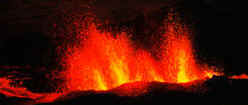 if also there appear by probable conjecture, that there is no more likelihood of thy amendment for
ensuing years to come, than there was in those already past, how happened it, that running headlong
into so manifest a danger, thou art not at all afraid; especially, considering the sinful state wherein thou
livest, and the horrible pains and torments which do attend for thee, and the time which thou hast lost
and the endless repentance which thou shalt have therefore in the most horrible torments of hell?
Assuredly, it goeth beyond the compass of all common sense and conceit of human reason, to
consider, that there should be such negligent, wilful, gross, and careless blindness, able to enter and
take such deep rooting in the soul of man.
if also there appear by probable conjecture, that there is no more likelihood of thy amendment for
ensuing years to come, than there was in those already past, how happened it, that running headlong
into so manifest a danger, thou art not at all afraid; especially, considering the sinful state wherein thou
livest, and the horrible pains and torments which do attend for thee, and the time which thou hast lost
and the endless repentance which thou shalt have therefore in the most horrible torments of hell?
Assuredly, it goeth beyond the compass of all common sense and conceit of human reason, to
consider, that there should be such negligent, wilful, gross, and careless blindness, able to enter and
take such deep rooting in the soul of man.
